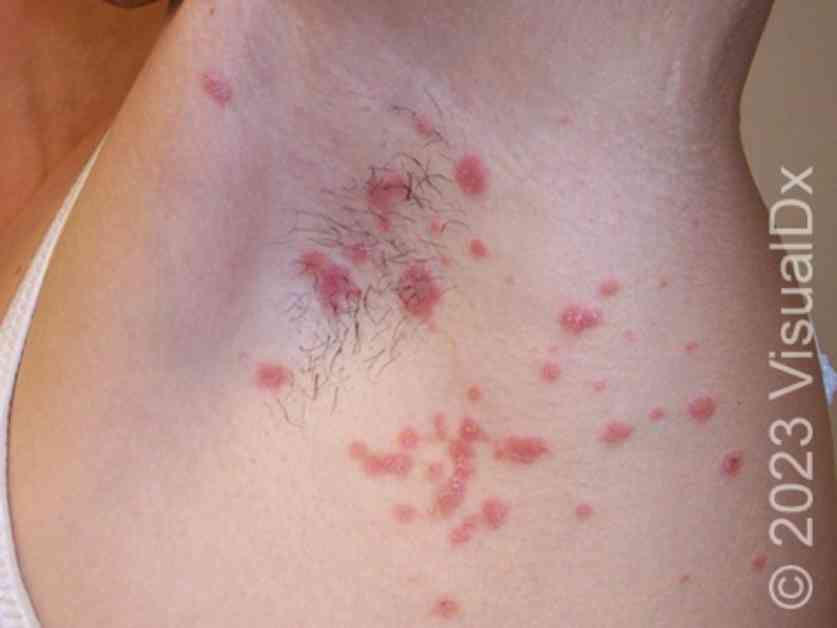Guttate psoriasis is a skin condition that can affect people of all ages, races, and genders, but it is most commonly seen in children and individuals under 30 years old. It affects both men and women equally.
The main symptom of guttate psoriasis is small drop-shaped, scaly spots that usually appear 2-3 weeks after a strep infection, often in the throat or tonsils. The patches can be pink or red in lighter skin tones, while in darker skin tones, the redness may be less visible or appear purple, grayish, or dark brown. The rash may have thin, white, flaky skin on top and typically starts on the trunk, arms, and legs but can spread to other areas like the face, neck, and scalp. Itching is a common symptom associated with guttate psoriasis.
While self-care measures cannot cure guttate psoriasis, they can help manage symptoms. Taking daily baths can help soothe inflamed skin, and using mild, moisturizing soaps like Dove Sensitive Skin Beauty Bar can be beneficial. Ointment-based moisturizers like petroleum jelly or Aquaphor can help keep the skin hydrated and relieve itching.
For treatment, topical steroids are often prescribed, especially for localized areas. Vitamin D creams like calcipotriene can also help reduce symptoms. In some cases, ultraviolet light therapy or biologic medications may be recommended. Antibiotics may be prescribed if a bacterial infection is suspected to be the trigger for guttate psoriasis.
If symptoms persist or worsen, it is important to seek advice from a medical professional. Guttate psoriasis lesions usually last a few weeks and fade away, but in some cases, they can develop into chronic plaque psoriasis.
The National Psoriasis Foundation is a valuable resource for patients and healthcare professionals looking for more information on psoriasis and available treatments. They offer articles, research, a directory of healthcare professionals specializing in psoriasis, and opportunities for patients to get involved in events.
In conclusion, understanding guttate psoriasis, its causes, symptoms, and treatment options is essential for those affected by this skin condition. By following self-care guidelines, seeking appropriate treatment, and consulting with healthcare providers, individuals with guttate psoriasis can effectively manage their symptoms and improve their quality of life.


















